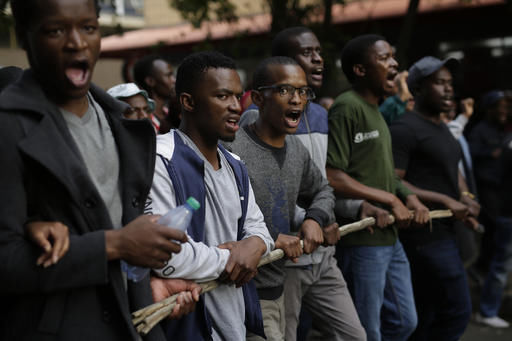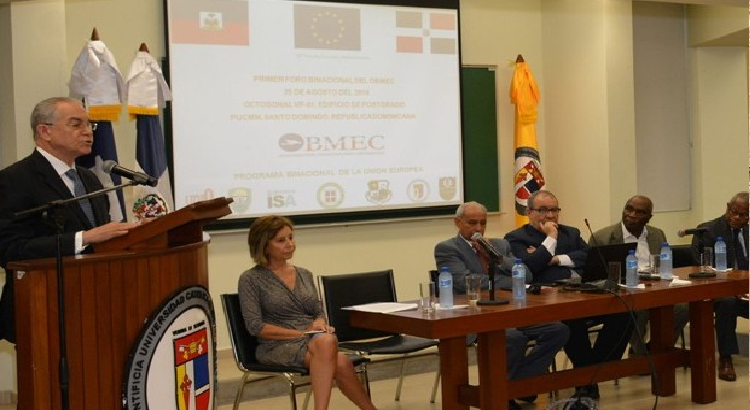África/Sudáfrica/23 Octubre 2016/Fuente:abcnenws /Autor: CHRISTOPHER TORCHIA
Resumen: Manifestantes estudiantiles recriminaron el rector de una de las mejores universidades de Sudáfrica el miércoles, descargando su ira por los derechos de matrícula a lo que se suponía que era un evento de construcción de la paz. La tensa escena , lo que finalmente alivió cuando Habib salió por una puerta lateral, refleja las divisiones amargas todavía hierve a fuego lento después de semanas de protestas de los estudiantes universitarios para la enseñanza gratuita a través de África del Sur.
Student protesters berated the vice-chancellor of one of South Africa’s top universities on Wednesday, venting their anger over school fees at what was supposed to be a peace-building event.
«You are a very cruel man. I hate you,» student leader Vuyani Pambo said into a microphone as Adam Habib, vice-chancellor of the University of the Witwatersrand in Johannesburg, sat quietly in a pew at the front of the Holy Trinity Catholic Church where the meeting was held.
The tense scene, which eventually eased when Habib left through a side door, reflected the bitter divisions still simmering after weeks of university student protests for free education across South Africa.
While there is widespread support for the idea of free education, the South African government says it can only cover fee increases for poor students next year and has been critical of student protests involving vandalism and stone-throwing.
Meanwhile, many students want to study rather than go along with protesters’ calls for disruption. University administrators like Habib seem caught in the middle, trying to get classes back on track while calling for more state investment in education. Protesters also have blamed him for campus battles with police who say, in turn, that their role is to keep order.
On Wednesday, a Johannesburg court denied bail to Mcebo Dlamini, a student leader at the University of the Witwatersrand who was arrested for alleged violence and intimidation during protests. The next hearing in his case is Nov. 15.
A group of academics at the University of the Witwatersrand called for a meeting at the church, which is adjacent to the university, with the goal of working toward «a peace accord for the university, so that it can unite to solve the goals currently facing higher education.»
It didn’t turn out that way.
Father Graham Pugin, the church’s pastor who was hit in the face by a police rubber bullet during an Oct. 10 skirmish between police and protesters, gave a brief introduction. But students quickly expressed outrage that Habib was present.
«Habib must go,» they chanted.
Several people stood around Habib, fearing the hostile crowd might close on him. He eventually left after Pambo, the student leader, said the vice-chancellor should be able to leave unharmed «to show the country that we are not criminals.»
On Friday, protesters encircled Vice-Chancellor Max Price of the University of Cape Town outside a campus building, and he was pushed and took two punches to the body, according to the university.
Managers at the University of the Witwatersrand said they had been invited to the church meeting by its organizers.
«We are disappointed that people felt that we should exit the peace meeting even after we had been invited to attend it,» Habib said in a statement. «We remain committed to working with students and student leaders in trying to find solutions to these issues, many of which can only be resolved at the national level.»
Fuente de la noticia: http://abcnews.go.com/International/wireStory/leader-south-african-student-protests-denied-bail-42901643
Fuente de la imagen: http://bloximages.newyork1.vip.townnews.com/roanoke.com/content/tncms/assets/v3/editorial/1/0c/10c2172f-360a-5fe1-925e-ff1133aa5d40/5807adbb74b8b.image.jpg?resize=512%2C341









 Users Today : 7
Users Today : 7 Total Users : 35460698
Total Users : 35460698 Views Today : 15
Views Today : 15 Total views : 3419839
Total views : 3419839